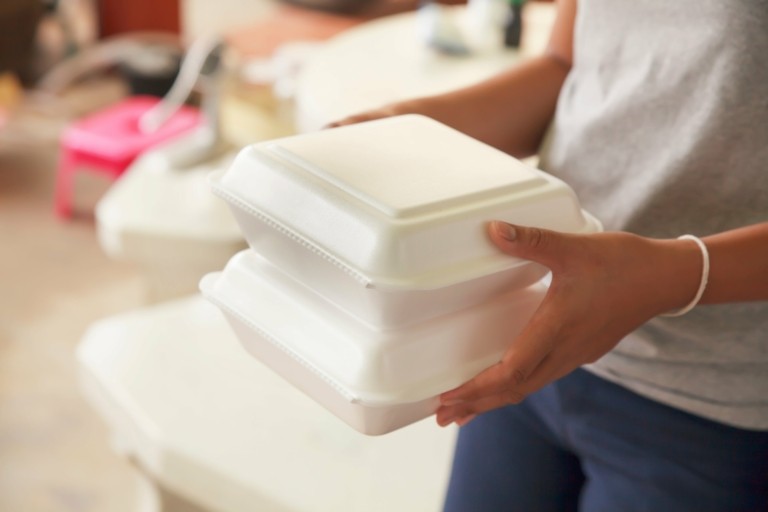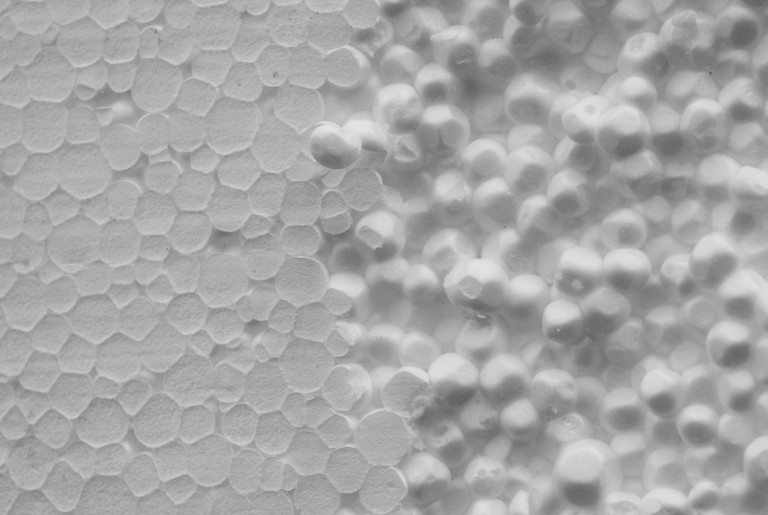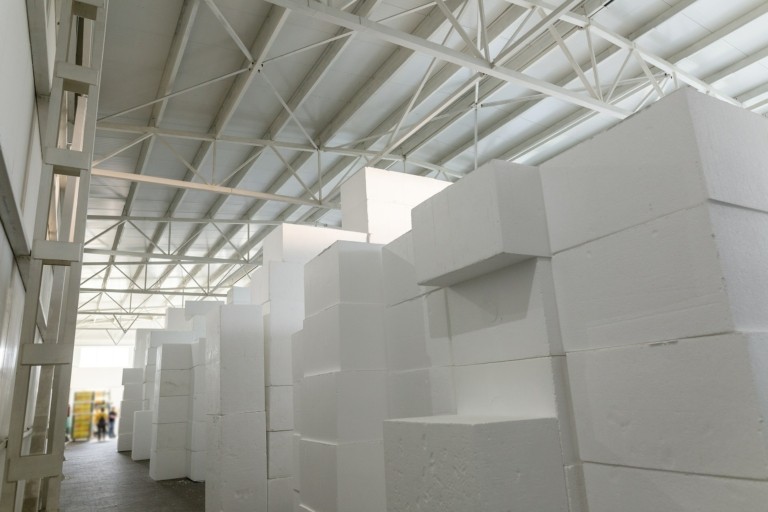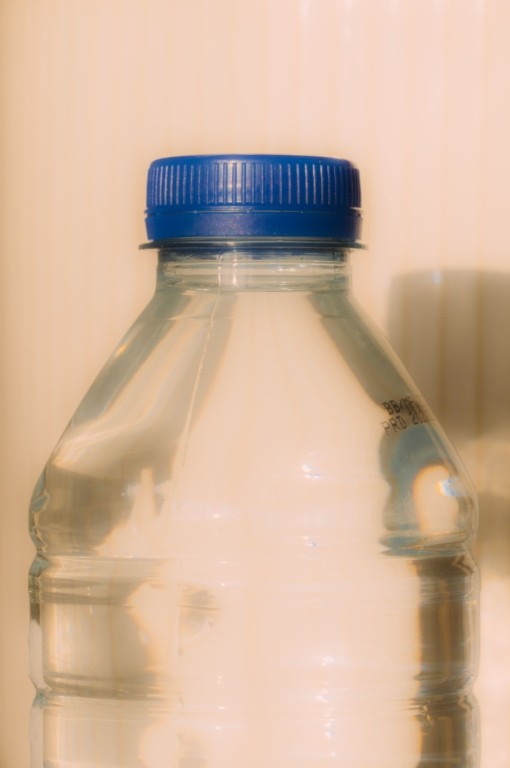
Reading through Recology’s new service guide (2012-2013), we noticed the instructions for organics say that compostable/biodegradable bags are not accepted by California’s largest compost facility Recology, this is due to various different reasons including that most PLA products take over 90 days to completely disintegrate in compost facilities. Compostors in the State of California are having a hard time breaking down the PLA materials regardless of the approval of compostable plastics by the Biodegradable Products Institute. Which is another issue in itself, are these products truly biodegradable? Compostable products are assimilated by heat, 140F or higher and most compost facilities do not have the temperature to break down these products. This tends to have a problem when claiming compostable products within the majority of the State of California. San Francisco is however composting at 140F and are able to disintegrate the PLA products into small lactic acid molecules.
PLA or polylactic acid works by hydrolysis, hydrolysis is the breaking of the chemical bonds by water, this allows the PLA material to disintegrate and release CO2 into the atmosphere.
PolyLactic Acid’s main manufacturer has stated on their website that it does not work Anaerobically so if you were to toss the compostable plastic into the landfill, it would act just like a plastic bag would. This is a problem for California as the largest composting facility in the State is rejecting the compostable plastic bags all-together.
According to the US Composting council
ASTM STANDARDS NEED REFINING
The viability of compostable plastics in the marketplace depends in large part on their
performance at commercial compost facilities. Yet there are still many unanswered questions regarding the ability of compostable plastics to biodegrade at composting facilities, as well as potential impacts they may have on the marketability of the compost product.
While D6400 is currently the most recognized standard for determining compostability, there is growing concern that D6400 certification is not an adequate indicator for whether a product will compost at potentially diverse commercial compost facilities. At the heart of this concern is the 180 day timeframe specified for biodegradation. Many commercial compost facilities are completing their process in well under that time. In fact, of the composters interviewed for this project, none reported a process longer than 120 days—and most were under 100 days. This inconsistency between operational trends in the industry and the ASTM standard must be addressed to maintain relevancy of the standard for composting operations. As an example of a possible solution, this standard could be enhanced by creating multiple test methods, to test biodegradability that would be based on different operating conditions common to commercial composting facilities.
The full report can be found here
http://compostingcouncil.org/admin/wp-content/plugins/wppdfupload/pdf/3186/Compostable%20Plastics%20101%20Paper.pdf



